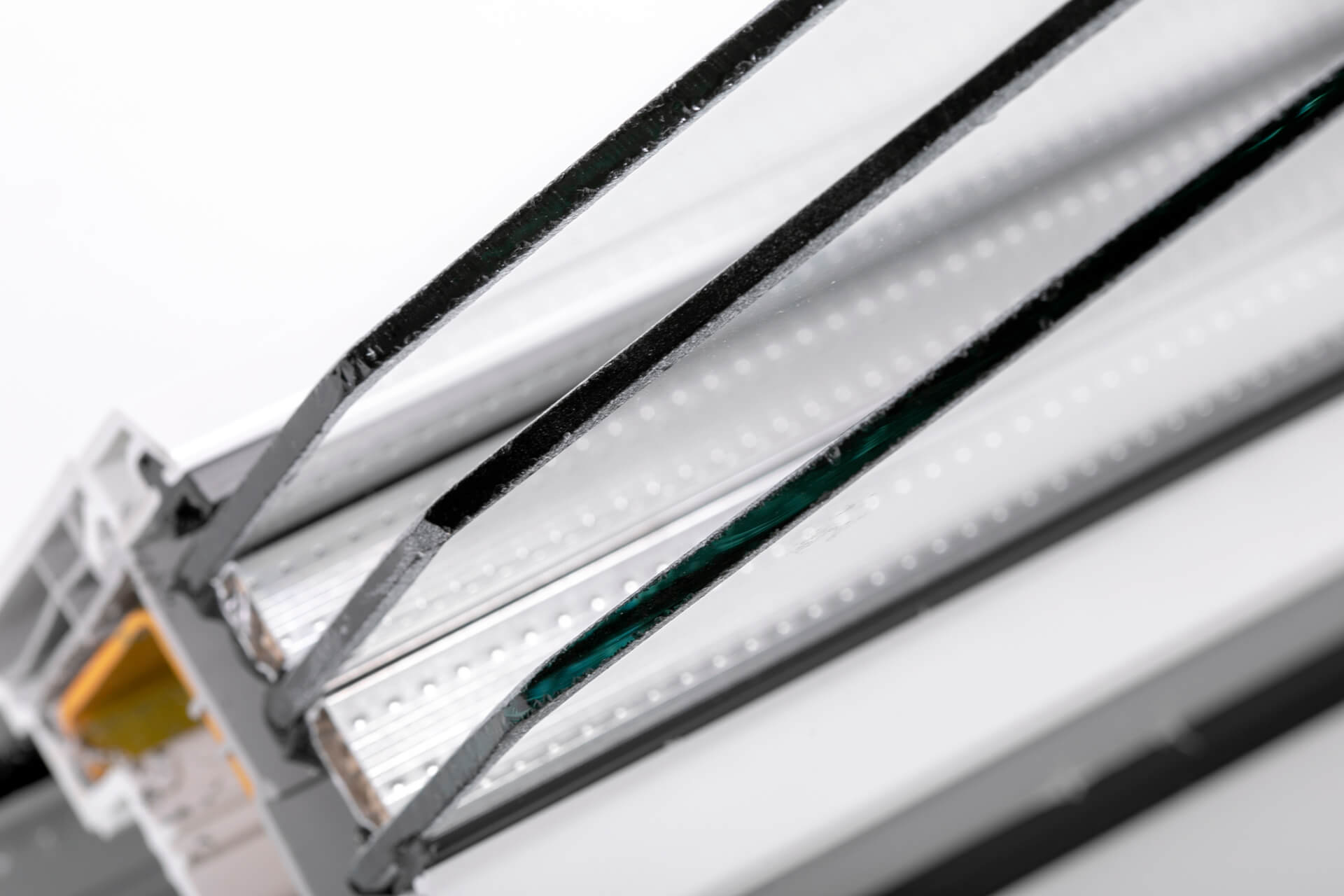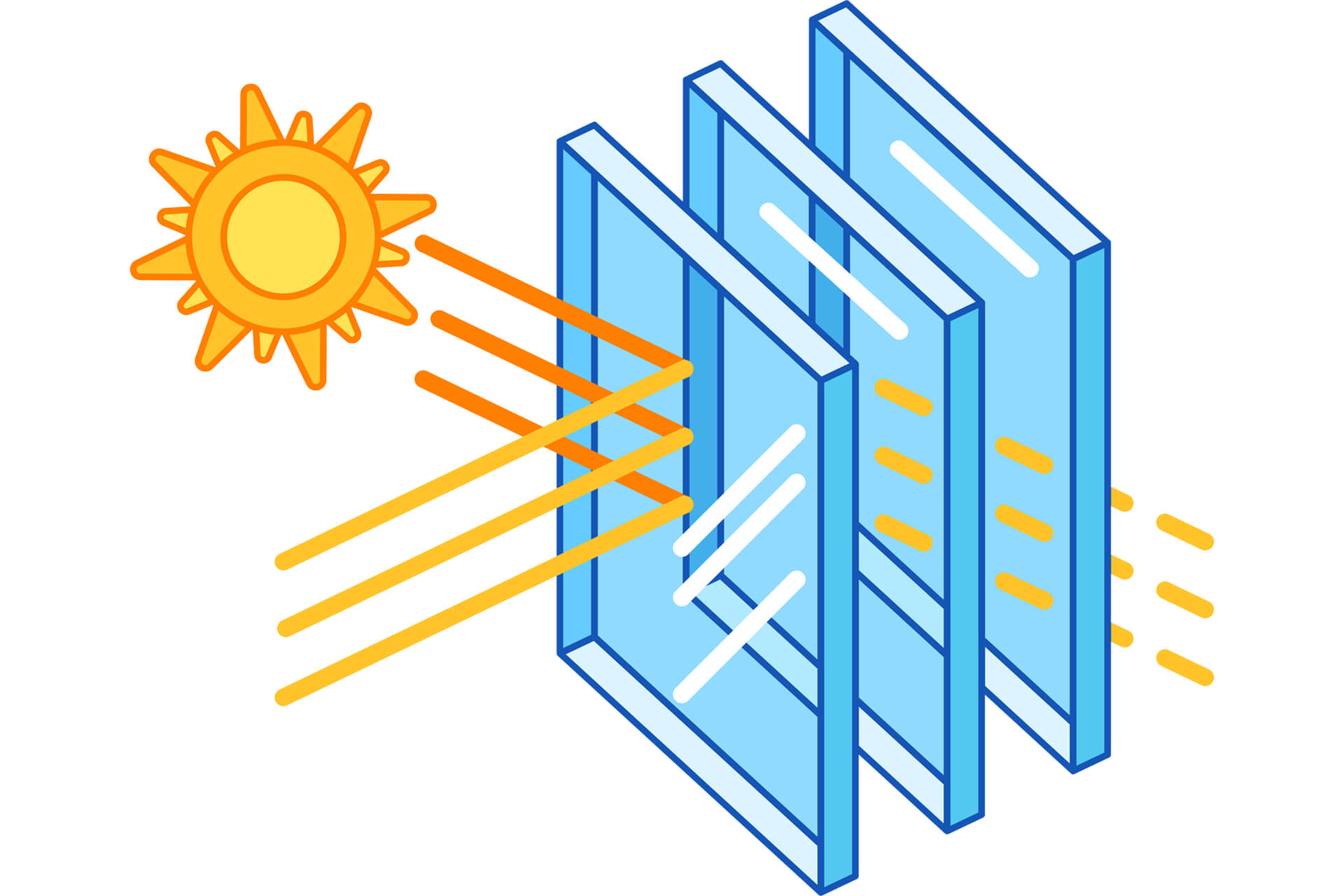As the temperature drops, keeping your home warm and comfortable is a top priority. Argon gas-filled windows have gained traction in recent years due to their energy efficiency. They provide enhanced insulation, contribute to reduced condensation, and improve sound insulation. In this article, we explore the benefits of this technology for maintaining a cozy and inviting home environment at a reduced cost.
What is Argon Gas?
Argon gas is a colourless, odourless, and non-reactive gas that is found in the Earth’s atmosphere. It is often used as a filler between window panes to improve insulation and energy efficiency. Compared to regular air, argon has lower thermal conductivity: it’s a monatomic gas, which means it consists of single atoms rather than molecules. This characteristic, along with its lack of polarity, contributes to its low thermal conductivity, making it an effective insulator. This makes it better than air at slowing down the transfer of heat between the inside and outside of your home, leading to improved energy efficiency.

Benefits of Argon Windows
Enhanced Energy Efficiency: Argon reduces heat transfer between the interior and exterior of your home. This helps keep your indoor spaces warmer during the winter and cooler during the summer. Minimizing heat loss and heat gain leads to lower energy consumption, resulting in decreased utility bills and long-term savings.
Improved Home Comfort: Argon-based insulation creates a more consistent indoor temperature. It eliminates uncomfortable cold drafts and hot spots, and provides a cozier living environment.
Condensation Prevention: Argon gas minimizes condensation on window surfaces. It reduces the potential for moisture-related issues, such as mould growth and damage to window frames.
Noise Reduction: The insulating properties of argon gas contribute to sound reduction. These windows create a quieter and more peaceful indoor environment by blocking outside noise.
Environmental Impact: Argon-based technology reduces energy consumption and helps lower carbon emissions. They contribute to a greener environment and promote sustainable building practices.
Since some exterior doors also have glass panels incorporated in them, all these benefits would also apply.
Optimizing the Benefits of Argon Windows
When choosing Argon gas-filled window technology, consider the following structural factors that can impact the effectiveness of this technology:
Window Frame Materials and Design: The type of window frame material and design can impact the effectiveness of argon gas. Well-designed frames with proper seals contribute to optimal insulation.
Proper Sealing Techniques and Maintenance: Effective sealing techniques trap argon gas between the panes, and maintain its insulating properties over time. Regular maintenance is essential to prevent leaks.
The Role of Spacer Bars in Gas Retention: Spacer bars are crucial components that maintain the distance between window panes. High-quality spacer bars prevent gas leakage and maintain insulation performance.
Argon Windows Maintenance Tips
To maintain the pristine appearance of your argon gas-filled windows, employ a gentle approach. To that end, you can use a mild detergent and a soft cloth to remove dirt and grime without compromising the integrity of the window’s components. However, avoid the use of abrasive cleaners, as these can potentially harm the seals and glass surfaces.
In addition to regular cleaning, conducting routine inspections is vital for preserving the efficiency of your windows. By ensuring the integrity of your window seals, you can prevent gas leakage and maintain optimal insulation levels. Should any signs of gas leakage or window damage become apparent, it is crucial to take swift action. Addressing such issues in a timely manner will help you maintain the energy efficiency and overall performance of your argon gas-filled windows, ensuring that they continue to serve as a valuable asset to your home’s comfort and sustainability.
Comparison to Other Insulation Techniques
Low-E Coatings vs Argon Gas: While both enhance energy efficiency, they serve different purposes. Argon gas primarily reduces heat transfer, while Low-E coatings reflect UV rays and infrared light.
Krypton vs Argon Filling: Krypton gas, another insulating gas, offers higher thermal resistance than argon gas, but is also more expensive. The choice depends on your budget and energy efficiency goals.

Common Misconceptions About Argon Windows
Myth: The Gas Escapes Over Time
Argon gas is not prone to leakage when properly sealed, it’s worth noting that over long periods of time, even well-sealed windows can experience a very slow rate of gas leakage. Therefore, while argon-filled windows have long-term effectiveness, they may not retain 100% of the gas indefinitely, and would still require window replacement after several decades.
Myth: The Gas Is Harmful
Argon gas is non-toxic and poses no health risks to occupants. It’s commonly used in various applications, including medical procedures.
Myth: They Require Special Maintenance
While all windows need regular maintenance, argon-based technology does not require any special care. However, we advise checking periodically for seal failures, as this could lead to the escape of the argon gas and the infiltration of outside air, thereby reducing the window’s insulating properties.
Frequently Asked Questions
Using argon gas in windows enhances insulation, reduces heat transfer, and contributes to improved energy efficiency and comfort.
Refilling argon gas in windows typically requires professional assistance. It’s important to work with experienced technicians to ensure proper gas retention.
In some cases, argon gas can be added to existing windows, but it’s essential to consult with professionals to assess the feasibility and cost-effectiveness of this option.
No, this is a feature that you can specifically choose or request during the window purchasing and installation process.
Yes, they contribute to noise reduction by acting as a barrier to sound transmission.
Conclusion
Argon gas-filled window and door technologies offer a multifaceted solution to the challenge of keeping your home warm and comfortable. With their thermal insulation, moisture reduction capabilities, and sound insulation properties, these windows contribute significantly to energy efficiency and overall living quality. Therefore, when considering window options for your home, consider the benefits of argon gas-filled windows, their installation requirements, and their long-term maintenance needs. By making informed decisions, you can create a cozier, quieter, and more inviting home environment for you and your loved ones.
